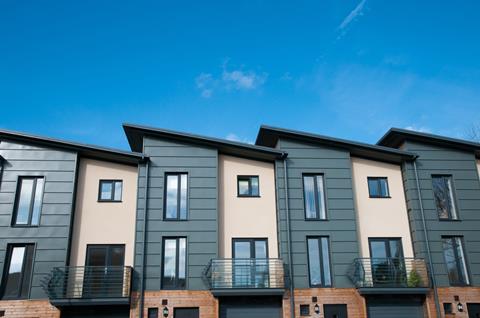Long term funding agreement with housing associations haven’t delivered benefits beyond normal procurement, evaluation finds
The use of long term “strategic partnerships” between Homes England and major housing associations has not delivered significant additional value, according to an official evaluation of the government’s 2016-21 affordable housing programme.
Homes England first launched its Strategic Partnerships procurement strategy with housing associations in 2018, under which it was supposed to agree to longer term funding deals and greater delivery flexibility for the partners, in return for them meeting broader targets, such as around MMC and design.

The report, commissioned by the Department for Levelling Up, Housing and Communities and carried out by consultant SQW, found that “the level of ‘added value’ generated through the SP [strategic partnerships] model has been modest” and that “the creation of a more ‘strategic’ relationship has not largely been realised”.
The evaluation of the £4.2bn Homes England programme, which it said had only completed 27% of the total homes by March 2021, also said that it had had a “limited effect on supporting the use of MMC” – one of the goals of the strategic partnerships approach – and that overall there was “limited success in realising the ‘added value’ element of the SP model”.
However, Homes England said the partnerships had provided “important benefits”.
Strategic partnerships are ultimately targeted to deliver 42,000 homes under the 2016-21 programme.
The evaluation said that where grant recipients that worked through the other principal method of grant distribution, continuous market engagement (CME), were “largely positive on systems and processes”, around half of those working in strategic partnerships did not think the system worked well.
In addition, it said that the anticipated ‘flexibility’ of the SP model, which was a key driver of becoming a “strsategic” partner for many, according to the report, did not materialise, with “the requirements [not] perceived as materially different than under scheme-by-scheme bidding”.
>> See also Homes England strategic partnerships: How does this round compare to the last?
>> See also Strategic partnerships and the mysterious case of London’s missing affordable homes
However, it did find that the strategic partnerships model was recognised by “most” partners as having “influenced the scale at which they have delivered, or are committed to delivering, new affordable homes, with the certainty of funding and size of settlement through the SP supporting the scaling up of development programmes.”
Both Homes England and the Greater London authority took on and expanded the use of strategic partnerships in the later £11.5bn 2021-26 affordable housing programme, with Homes England in 2021 saying that its “current strategic partnerships have transformed the way we work with housing associations and proved a successful mechanism for scaling up the delivery of affordable housing”.
The National Audit Office reported in September last year that the 2016-21 programme, which was extended to 2023 due to the pandemic, will only see 96% of the number of expected homes started and will take until 2032 for all homes to complete.
When the government extended the programme it said that all housing starts were to be made by March 2023 and all completions by March 2025. The evaluation said that by the original end-date of the programme, March 2021, just 34,780 of 130,000 homes had been completed, with 59,300 started and 102,300 approved. It said the completions which been achieved had been done “minly by CME”.
The evaluation report recommended that Homes England should ensure that any new ‘strategic partnerships’ procurement processes “provide full clarity to bidders regarding expectations on the bidding, contracting and delivery processes and systems at the outset.”
A spokesperson for Homes England said strategic partnerships model had “a number of important benefits” and had contributed to the delivery of at least 130,000 new affordable homes, and will deliver more through the Affordable Homes Programme 2021-26.
They said: “Crucially, the report identifies that the scale of schemes enabled by strategic partnerships can lead to enhanced housing quality, that homes delivered through strategic partnerships are often associated with higher environmental standards, and that strategic partners have enabled a greater focus on quality place-making and the enhancement of local environments.
“This is why we’ve continued to use the model. As we’d expect with any new delivery model, there are lessons to be learnt, which this evaluation rightly highlights. Indeed, many of these learnings have already been reflected in our latest iteration of the strategic partnerships.”











No comments yet